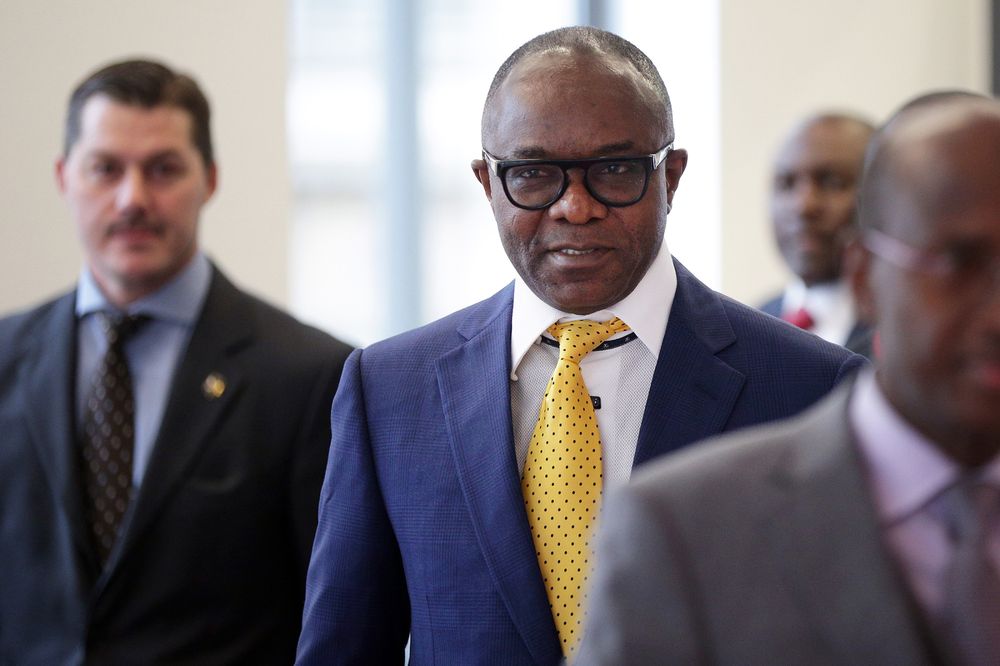- We’ll Miss 2019 Target for Refineries’ Revamp – Kachikwu
The Minister of State for Petroleum Resources, Dr Ibe Kachikwu, has said the plan to get the nation’s ailing refineries to work at almost full capacity will not materialise by 2019.
Kachikwu stated this on Monday in Lagos at the 18th edition of the International HSE Biennial Conference on the Oil and Gas Industry in Nigeria organised by the Department of Petroleum Resources, in conjunction with other stakeholders.
Last year, the minister vowed to resign if the country failed to attain self-sufficiency in the refining of petroleum products by 2019.
When asked to state the year that Nigeria would be self-sufficient in refining petroleum products, Kachikwu, who was a guest on BBC Hard Talk in London on May 22, 2017, replied, “I have said 2019, and that is the target that I gave.”
Earlier on May 4, 2017, the Nigerian National Petroleum Corporation expressed commitment to actualise the December 2019 target set by the Federal Government to end the importation of petroleum products into the country.
The Group Managing Director, NNPC, Dr Maikanti Baru, was quoted in a statement as saying at the Nigeria Oil Industry Award Dinner during the Offshore Technology Conference 2018 in Houston, United States, that measures had been taken to achieve the target.
He explained that in terms of refining and production of local petroleum products, the ongoing arrangement with the original builders of the refineries to return them to at least 90 per cent capacity utilisation before the 2019 deadline was still intact.
Kachikwu said on Monday in a keynote address that 10 out of the over 40 licensed modular refineries had got into serious work, with three likely to come on stream towards the end of next year.
He said work was ongoing on the four refineries owned by the NNPC, adding, “Hopefully in the next board meeting next week, we will be able to come to final landing on the commercial terms for those investments. If we do, that brings in the processing of 445,000 barrels of crude.
“Even though I had wanted in my usual bullish nature to get this thing driven so that we can have all the refineries working by end of 2019, obviously it will slip a bit. But what is important that we must begin the process. We are going to deliver those barrels refined by 2020, so be it.”
On the refinery being built by Aliko Dangote in Lagos, with a capacity of 650,000 barrels per day, the minister said, “We are working very hard with him on it.”
The media reported on November 8, 2019 that the proposed rehabilitation of the nation’s refineries had suffered delays as the third-party financiers for the project had yet to be announced, more than a year after the NNPC said 28 firms had expressed interest in its financing.
Nigeria has four refineries, two in Port Harcourt and one each in Kaduna and Warri, with an installed capacity of 445,000 bpd, but they have continued to operate far below the installed capacity for many years.


 Naira4 weeks ago
Naira4 weeks ago


 Naira4 weeks ago
Naira4 weeks ago




 Naira4 weeks ago
Naira4 weeks ago




 Naira3 weeks ago
Naira3 weeks ago
 Commodities4 weeks ago
Commodities4 weeks ago


 News4 weeks ago
News4 weeks ago
 Travel4 weeks ago
Travel4 weeks ago




 Naira3 weeks ago
Naira3 weeks ago















